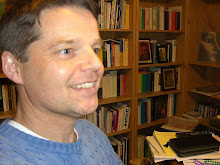“Over the next few days, we’ll ponder the sources of Cho Seung-Hui’s rage. There’ll be no shortage of analysts picking apart his hatreds, his feelings of oppression and his dark war against the rich, Christianity and the world at large,” David Brooks writes in his April 19 column in the New York Times. He goes on to describe how neuroscientists, evolutionary psychologists, and social scientist have improved our understanding of human behavior – “important knowledge, but it’s had the effect of reducing the scope of the human self.” He is worried about the consequences for individual character and choice. Is the individual a responsible agent or “like a cork bobbing on the currents of giant forces: evolution, brain chemistry, stress and upbringing”? Not a pleasant prospect: we peel back the layers of determination like the many skins of an onion to get to a core we can identify as the morally responsible self, only to end up with nothing but a pile of skins. “There still seems to be such things as selves, which are capable of making decisions and controlling destiny,” Brooks concludes, only “we no longer have any agreement about what they are.”
We want to understand why people do what they do. We want to know how to prevent eruptions of violence like the one at Virginia Tech that left 33 students and teachers dead. We desire for life to flourish and suffering to be reduced, and our explanations will inform our responses. Some will call for tighter security on college campuses, others for more restrictive weapons control, again others will recommend changes to privacy laws or greater cooperation between mental health professionals and law enforcement or stricter control of violent movies or computer games. This is an important and continuing debate, and each perspective has value, but no matter what set of actions governments and school officials adopt, it is more than likely that other eruptions of violence will occur.
“It would be madness to think Cho Seung-Hui could have been saved from his demons with better sermons,” Brooks writes (I hope that the professors responsible for teaching homiletics will have their students carefully read that sentence). We have reached a high level of sophistication in scientifically explaining human behavior, but when violence erupts, one of our most eloquent commentators speaks of “demons” and “salvation.” Demons are manifestations of forces of evil beyond our control, and salvation addresses the reality of a God who intervenes to make creation whole. We believe and proclaim that God has acted in Jesus Christ to save creation from its demons. We celebrate on Easter that God’s love is stronger than the forces of sin and death. We celebrate that God has drawn us from isolation into community. We rejoice that God has raised us from the tombs of our fears and sent us to reach out to others with love. We give thanks to God that we are not isolated indivduals “bobbing [like corks] on the currents of giant forces,” but persons who discover their true selves in relationship with Jesus Christ. Our mission is not to explain, blame, or judge, but to confuse and confound the demons with prayer and acts of kindness and inclusion. God will take care of driving them out.
Subscribe to:
Post Comments (Atom)




No comments:
Post a Comment